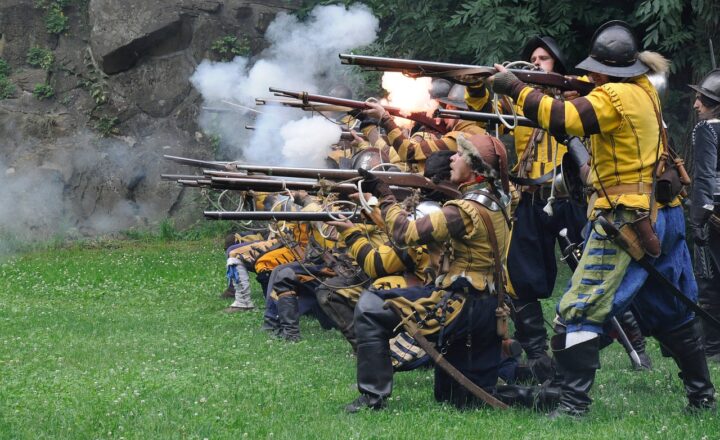
The Central Intelligence Agency (CIA) of the United States has a complex and often controversial role in shaping international relations and engaging in covert operations worldwide. Established in 1947, the CIA was created during a tumultuous period in human history. Its primary mission is to collect, analyze, and disseminate foreign intelligence to protect national security and inform policymaking. However, the agency’s involvement in covert operations has sparked debates about its ethical implications and the impact on global politics.
1. The Historical Context of CIA Operations
The Cold War marked a significant phase in the CIA’s history, where it undertook numerous covert actions to counter Soviet influence around the globe. Fear of communism led the agency to engage in operations that ranged from espionage to regime change. Key events include:
- The Overthrow of Iran’s Mossadegh (1953): The CIA orchestrated a coup d’état to destabilize the democratically elected Prime Minister, Mohammad Mossadegh, due to his nationalization of the Iranian oil industry. This event had lasting implications for U.S.-Iran relations.
- The Bay of Pigs Invasion (1961): An attempt to overthrow the Cuban government led by Fidel Castro, this failed operation showcased the limits of U.S. power and the risks of clandestine actions.
- Support for Contras in Nicaragua (1980s): The CIA’s involvement in aiding the Contras against the Sandinista government highlighted the agency’s willingness to intervene in Central American politics, leading to scandal and eventual legislative oversight.
These operations often bypassed democratic processes, raising concerns about accountability and the CIA’s role in foreign affairs.
2. Covert Operations and International Politics
The CIA has utilized covert operations as tools of foreign policy to achieve strategic goals without the need for overt military engagement. Such operations have included assassination, propaganda, psychological warfare, and support for insurgencies. Key examples are:
- Operation Gladio (post-WWII): This secret NATO operation involved the establishment of clandestine armies in Europe, designed to counter potential Soviet invasions. The implications of this operation continue to haunt European political landscapes today.
- The Soviet-Afghan War (1979-1989): During this period, the CIA provided weapons and training to the Mujahideen in their fight against the Soviet Union, significantly influencing the trajectory of the war and shaping Afghanistan’s future political climate.
These covert actions demonstrate the CIA’s dual role as both a protector of U.S. interests and a disruptor of foreign nations’ political stability.
3. Ethical Implications and Accountability
The agency’s operations often raise significant ethical questions. The lack of transparency, oversight, and the unforeseen consequences of its actions complicate the narrative of the CIA as a protector of national security. Key ethical concerns include:
- Human Rights Violations: Many operations have been linked to gross human rights abuses, including torture and extrajudicial killings, casting a shadow over the agency’s reputation and intentions.
- Involvement in Foreign Elections: The CIA’s engagement in influencing or destabilizing foreign democratic processes has led to long-term consequences for those nations and has oftentimes fostered anti-American sentiment.
Critics argue that the CIA operates with little accountability, making it imperative to evaluate the ethical frameworks guiding its secret activities to ensure they align with broader U.S. values and international norms.
4. Modern Challenges: Adapting to a New World Order
In the post-9/11 world, the CIA has faced new challenges, including counterterrorism, cyber warfare, and the emergence of digital espionage. Unlike traditional state actors, non-state actors present a complex challenge that necessitates a recalibration of CIA strategies. Examples include:
- Global Terrorism: The agency has placed significant focus on combating terrorism, leading to controversial practices such as extraordinary rendition and targeted killings, often calling their legality into question.
- Cyber Operations: The rise of cyber threats has seen the CIA incorporate cyber intelligence into its arsenal, engaging in cyber warfare and surveillance, further complicating the nature of covert operations.
These modern challenges reveal the ongoing evolution of the CIA’s role in a continually shifting geopolitical landscape, necessitating an ongoing examination of its practices and policies.
5. Conclusion: The Legacy of the CIA in Global Affairs
The CIA’s influence on foreign affairs and covert operations is profound and often contentious. While it plays a crucial role in safeguarding national security, the agency’s history is marred by ethical controversies and a lack of accountability, which necessitates ongoing scrutiny and reform. The balance between operational effectiveness and ethical considerations remains a delicate one, demanding a reassessment of its practices as the world continues to evolve.
Understanding the impact of the CIA’s actions abroad is vital not just for policymakers but for the global community, which must grapple with the implications of its operations on peace, stability, and international relations moving forward.
From the covert actions of the Cold War to the modern era of cyber threats, the CIA’s legacy will undoubtedly remain a topic of discussion in the annals of global affairs for decades to come.







